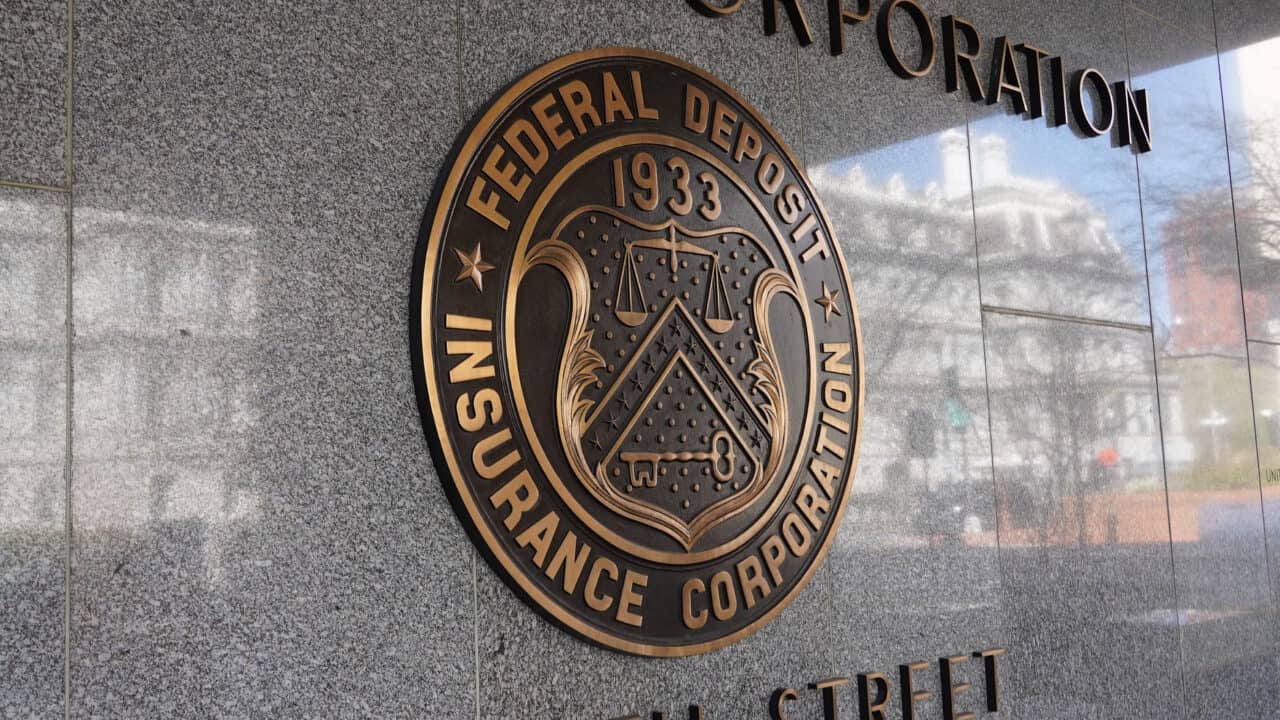 "FDIC Logo (Nikhilesh De/CoinDesk)" by CoinDesk is licensed under CC BY 2.0
https://www.coindesk.com/
"FDIC Logo (Nikhilesh De/CoinDesk)" by CoinDesk is licensed under CC BY 2.0
https://www.coindesk.com/
On May 16, 2023, the Washington Examiner published an op-ed by ATR Federal Affairs Manager Bryan Bashur. The piece discusses why it would be a mistake to increase the $250,000 deposit insurance limit on a temporary or permanent basis.
The Federal Deposit Insurance Corporation (FDIC) issued a report outlining options that would increase the deposit insurance limit. One of the reforms would establish a temporary program to specifically cover business payment accounts at a limit higher than $250,000 per depositor, per bank, per ownership category. The report:
envisions that business payment accounts could be covered under a program similar to the Transaction Account Guarantee program, which was originally created in response to the 2008 financial crisis to guarantee any non-interest-bearing account. In 2012 Congress did not reauthorize the TAG program because there would have been “less private sector control of bank risk-taking.” Any bill to reauthorize the TAG program, even for business accounts, would carry moral hazard risks and propagate future risk-taking.
The article goes on to discuss how the vast majority of deposit accounts are already covered under the $250,000 limit:
Many business accounts are already covered under the current deposit insurance framework. Fewer than 1% of bank accounts have more than $250,000. Additionally, most small businesses are already covered by the current deposit insurance threshold. A survey of 600,000 small businesses found that their median bank balance is $12,100 — far below the current $250,000 threshold.
Further, there are already private sector alternatives to be insured above $250,000:
Businesses can already have more than $250,000 insured. Depositors can utilize private sector alternatives, such as insured cash sweep accounts , which will spread deposits among different banks.
There are also alternative legislative solutions that can help prevent bank runs without increasing regulation or the moral hazard exhibited by increasing the threshold on federal deposit insurance:
Instead of more government guarantees and regulation, simple bank accounting tweaks offer more transparency and could alleviate risks of bank runs. One better alternative could be requiring “all assets held by banks to be marked to market,” as a recent Wall Street Journal opinion suggests. This is less onerous and offers more transparency on the market value of longer-dated securities. It also provides gradual clarity to depositors as to the true financial performance of a bank instead of surprising them with news of devalued bonds.
The Government Accountability Office (GAO) has already highlighted how deposit insurance exacerbates bank risk-taking:
The Federal Reserve has acknowledged that fully insuring depositors at Silicon Valley Bank and Signature Bank worsened moral hazard. According to the Government Accountability Office’s preliminary report on the bank failures, Fed “staff raised concerns about exacerbating moral hazard and potentially weakening the market discipline of many depository institutions.”
Additionally, a GAO report from 2010 found that expanded deposit insurance “could weaken incentives for newly protected, larger depositors to monitor their banks, and in turn banks may be more able to engage in riskier activities.” This moral hazard has now resulted in the Deposit Insurance Fund losing an estimated $18.5 billion from SVB and Signature and $13 billion from First Republic Bank. These losses are ultimately passed down to taxpayers.
Moreover, regulators should be held accountable for their own supervisory failures instead of propagating moral hazard:
According to the GAO’s preliminary report on SVB and Signature, as early as 2011, GAO warned the FDIC and other regulators about problems with properly escalating “supervisory concerns.”
The op-ed concludes by stating:
The FDIC’s reforms must be rejected by lawmakers. Instead of enhanced deposit insurance and a recreation of the TAG program, Congress should look at ways to increase accounting transparency and hold the Fed and FDIC accountable for their supervisory failures.
Click here to read the full op-ed.

